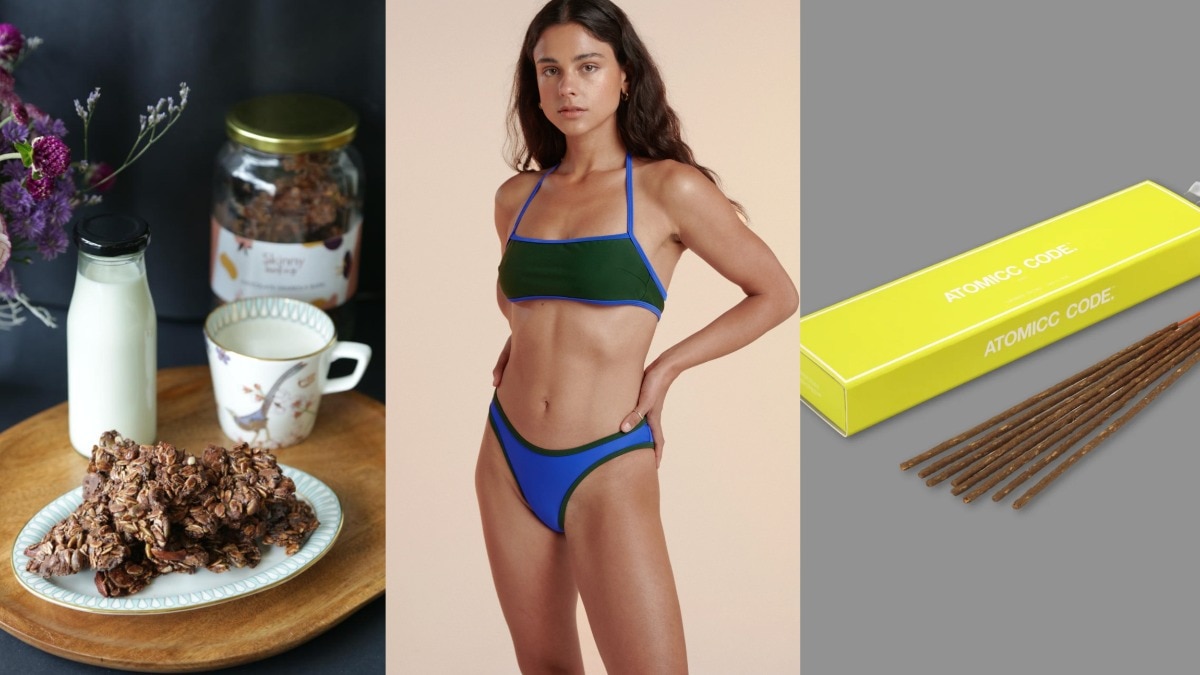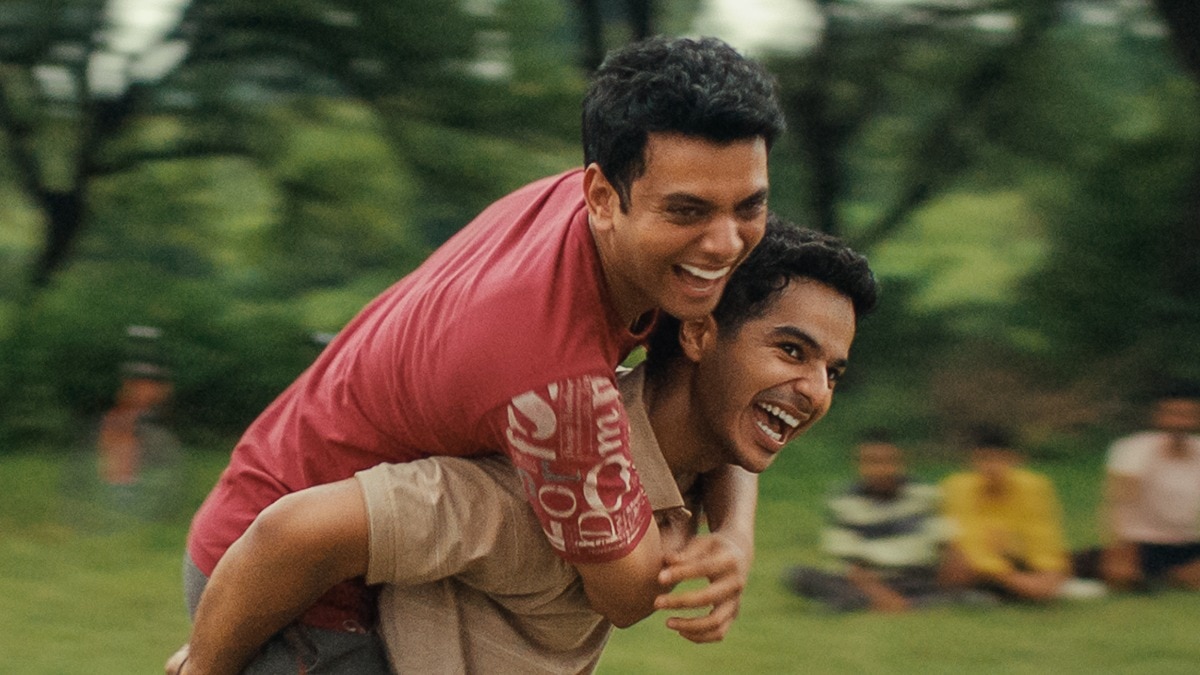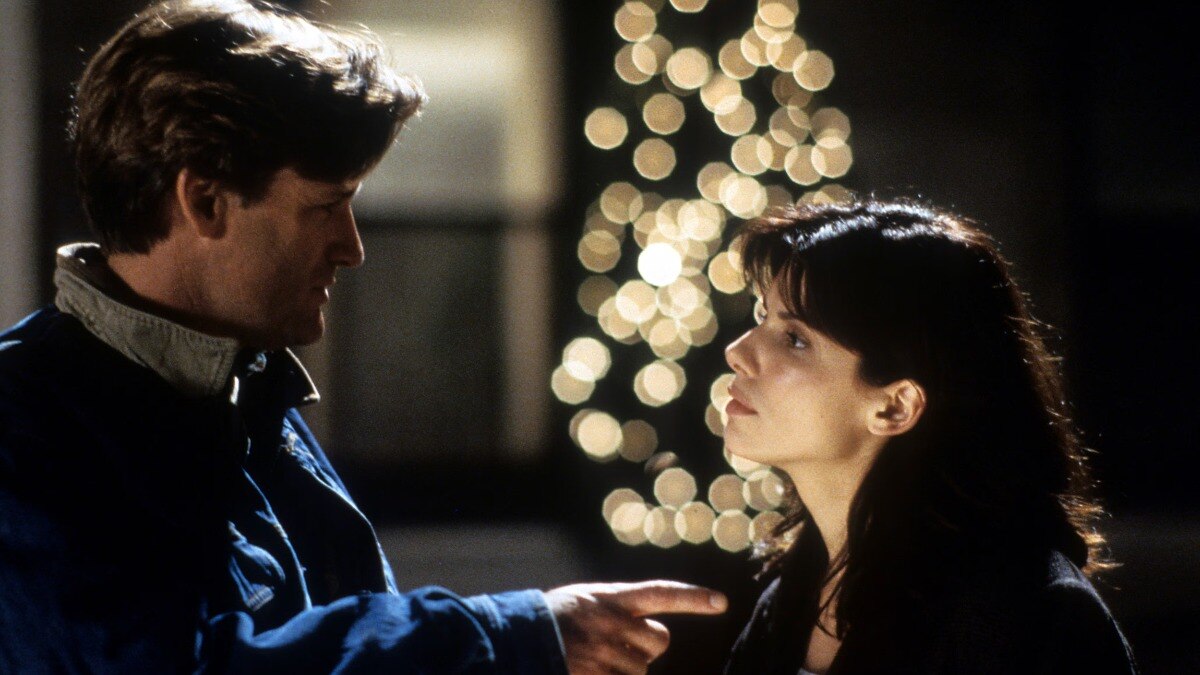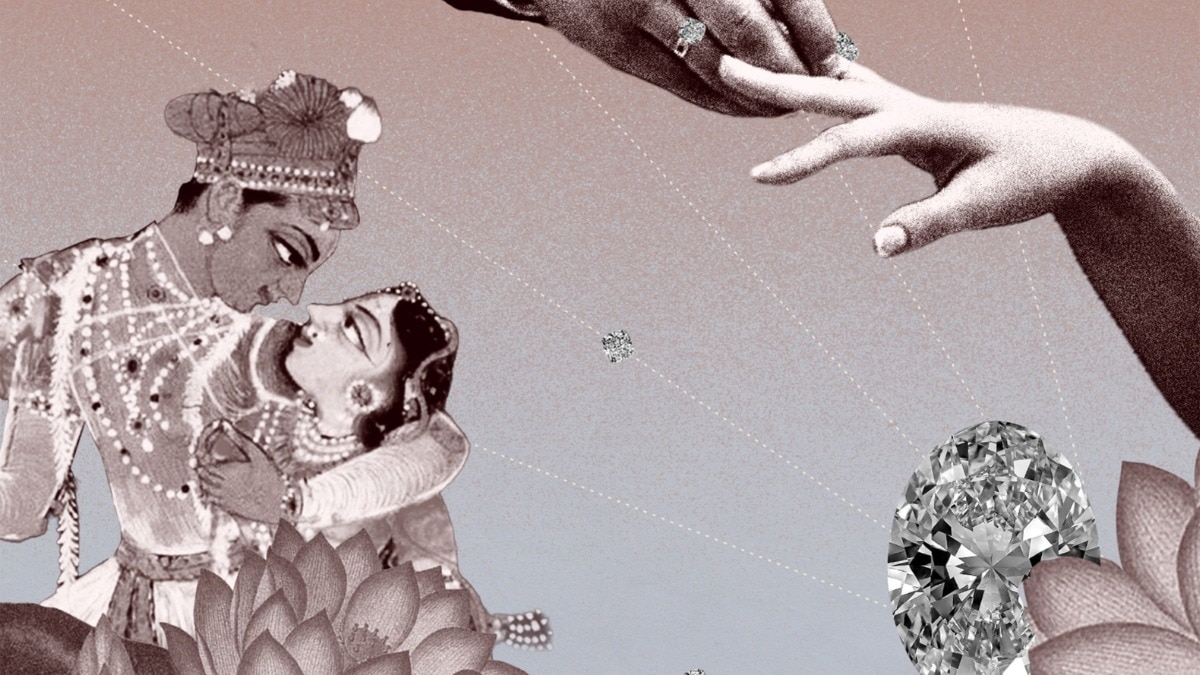How to change your perspective about ageing
An exploration, and slightly sceptical examination, into what we’ve been told about ageing. Spoiler: the truth is better than fiction.


Among the many congratulations and well wishes I received upon turning 40 last summer came this stark declaration from my dad: "It’s all downhill from here."
The message was undeniably rubbish (why don’t you snuff out my birthday candles while you’re at it?), but it’s not like we haven’t heard some version of it before. Forty has long been the bogeyman of birthdays—a rubicon that, once crossed, spells grey hair, wrinkles, and the end of youthful vitality as we know it.
In reality, women’s concerns as they enter their forties, fifties, and beyond are more nuanced. Sure, there’s the prospect of growing older and the existential biggie of mortality, but there’s also a host of practical issues many of us face—be it divorce, caring for an elderly parent, or raising a child. The convergence of stressors can lead to depression, anxiety and general unease.
Sounds like a midlife crisis, right? Well, Canadian psychoanalyst Elliott Jaques coined the term in 1965 for the period of discontent that he said occurs between the ages of 35 and 65. But, his theory was inspired by the ‘great men’, who experienced a change in their creativity in their mid-to-late thirties. As for women, he wrote that this transition is obscured by changes related to menopause—giving rather short shrift to our complex internal lives and giving us a reason to ditch the concept altogether.
Research estimates that only about 10 per cent to 20 per cent of all people experience any sort of midlife crisis. Those who feel off at this time are often triggered by dissatisfaction at not achieving what they wanted. "Many women feel lied to," says clinical psychologist Chloe Carmichael. "The lie is that you can have it all, without compromising." But life is a moving target. The goals you set at 25 probably aren’t the goals you have at 50. So, reflect and reassess. What do you want? Most opportunities don’t expire at midlife. If we reframe ageing into an opportunity rather than a reckoning of past shortcomings, there’s no limit to what we can achieve. Get started with science-heavy strategies and motivating stories…
Embrace any transition
How you fare in midlife can be affected by the mindset with which you approach it. Treat this milestone like any other transition (think: landing your first job or graduating from uni) suggests Ann Kearney-Cooke, a psychologist specialising in women’s issues. ‘There are losses and gains,’ she says, of entering a new life stage, adding that if we can reframe the ‘midlife crisis’ into a ‘transition’ we’ll be better able to devise a plan.
"Awareness is the first step in transformation," she says. So, for instance, if you always wanted to pursue the arts, but were saddled with student loan debt and needed a more practical career, make sure you recognise (rather than ignore) your feelings.
The next step is to write what Dr Kearney-Cooke calls a positive narrative. "Don’t get tunnel vision on what you didn’t do, but honour what you achieved," she says. So, "I failed at being an artist" might become, "I supported myself through tough times". Acknowledging your achievements makes moving forwards easier. "Then let it go to create a new narrative of, 'Where am I going next?'"
Setting fresh goals (signing up for a drawing class, perhaps?), is a powerful way to create a new path. And, all of your life experience is only going to help. "There’s a confidence that happens when you’ve cleared the basics, such as graduating and starting a career," adds Dr Carmichael. Her advice? Work out what happiness looks like for you, then look for ways to access more of it.
Lean into the load
The forties and beyond are not only a great time to pursue personal challenges, but physical ones, too, whether that means taking exercise seriously for the first time or amping up your routine to meet some heavy goals (hello, 20kg kettlebell). Once again, you’ll probably need to muscle your way through flawed thinking about what’s possible, as there’s no shortage of misconceptions about pushing physical boundaries.
PT Lauren Kanski has heard them all. "The biggest thing I see among middle-aged women is that they come in with a mindset that they’re getting older and they’re less capable," she says. "If they don’t have a training background, they think they’re going to hurt themselves." More often than not, says Kanski, these women are selling themselves short before ever setting foot in a gym. "Women are really strong, but think they can only lift a 4kg dumbbell."
Now is not the time to be trifling with those little pink weights. On the contrary, if you’re looking to maintain or even increase muscle mass (it naturally declines due to falling oestrogen levels, but you can turn it around) you should be lifting heavy, says Dr Stacy T Sims, an exercise physiologist and nutrition scientist.
"It’s important to do heavy-load resistance training, especially as you get into late perimenopause," she says, referring to the years proceeding your final period. "Oestrogen is responsible for lean mass development, as well as strength and power; it stimulates the cell for muscle protein development and it’s critical in the central nervous system for creating a muscle contraction." Essentially, you can counteract the negative effects of oestrogen loss by lifting heavy, which lights up the central nervous system to produce other chemicals that can take over where oestrogen left off.
Of course, you’re not going to start deadlifting 90kg or enter your first marathon tomorrow. Much like charting new courses in your personal life, physical goals are smashed one at a time. "I always tell people to find one challenge that they’re not good at, and that’s what we’re going to work on," says Dr Sims. If one of her clients wants to venture on a challenging hike, she’ll focus on the building blocks, such as jump movements for leaping off rocks, one by one. "For three weeks, we work on that one aspect," she says. "Then we take a bit of a break and focus on another one. Then we’ll come back to the first one." Small steps eventually lead to big climbs.
Also key is letting your body recuperate in between sessions with a rest day, as your muscles tend to heal more slowly as you age. (Triathletes in their fifties had slower muscle recovery than triathletes in their twenties, found a study published in Medicine & Science in Sports & Exercise.) Listen to your body and integrate restorative walks, yoga sessions or whatever rest sessions you need, so you can keep pushing yourself, but avoid injury.
Ultimately, your more mature mentality is going to be one of your biggest assets when it comes to pursuing new physical challenges. "I think there’s a new sense of strength in women at this age," says Kanski. "They know what it’s like to work hard and a lot of them have had kids. They’ve been through a lot and, often, can withstand more than younger women."
"Have a constant dialogue with yourself to squash comparison"
Becoming a mother at 48 opened up a new world for Tamron Hall, now 52, creator and executive producer of her self-titled show. It also helped her realise that you have to be diligent about carving out your own path (and not listening to the noise).
Motherhood came at an unexpected period in my life. For the first time since the age of 16, I wasn’t working. I was 48 and unemployed. I’d just left my dream job on a primetime TV show to pursue other goals and bet on myself. At the same time, I’d connected with an acquaintance who would soon become more than a friend. We took a leap of faith and decided to pursue love and parenthood.
Being a parent at this point in my career gives me room to create the show that I dreamed of and the environment to be the parent I want to be. I make it a point to show my team the real me: the ‘workaholic’ who’ll now say that I have a hard out to pick up my son from school. I hope to lead by example and grace, and to empower other parents to feel supported to do the same.
I started with an early foundation of seeing all things as possible. My mother was a single parent at 19 and my first father figure was my grandfather. Whether it was allowing me to run outside in the sun as long as I wanted or giving me a diary and saying ‘write!’, they instilled in me a life without limits. That doesn’t mean adversities didn’t exist. They’re real. But I was the kid who didn’t see an end to my curiosity. My nickname was ‘Not Necessarily’, because I questioned absolutely everything.
Fast-forward to starting the show and walking into meetings with people who would tell me every person whose show didn’t work out. I had to look past that. Just because something didn’t work out for someone else doesn’t mean it won’t for you. When I announced that I was pregnant, people told me their horror stories. I nodded out of respect, but didn’t allow them to infiltrate because I needed to have my own journey and to accept my reality.
Recently, I bought a washing machine online and it offered three options to compare. Too often we treat our lives as if we’re comparison shopping. We line up ours against others. I’m glad that I’ve refused the limitations others placed on me. I see my choices as perfect for me and I’m grateful for every one of them.
"We are capable of more than we can ever imagine"
When Keira D’Amato took an eight-year hiatus from running, she thought her competitive days were over. Little did she know, the best was yet to come. The mother and military wife smashed the American marathon record at the age of 37. Her secrets? Life experience, removing the pressure and exercising..
I joined my school track and cross-country team just to get in shape for sport. But in my first race, I was like, "Oh, this is for me". The sport taught me confidence, goal setting and how to be proud of who I am and what I can accomplish. I ran while I was at [university], then with a group for a couple of years. Then I got injured and I quit. I took eight years off and thought that part of me was gone. I said goodbye to goals. I never thought I’d be a competitive athlete again.
But in 2016, with a toddler son and an infant daughter, I started using an elliptical machine at home. Then I began running outside, loving each sliver of time that I was able to get out. When my youngest turned two, my husband had been deployed for over a year. That was the toughest time. I was lonely—yet I found happiness through moving my body. I started to love recreational sports. I found community. I wasn’t trying to win anything. My ‘whys’ changed. This time, it was about feeling good.
Soon, I was doing races with friends and, in March 2017, I ran my first marathon post-kids. My only goal was to not walk. I kept racing, realising that I was getting faster. For the first two years, I’d run as much as I wanted. Then in 2018, I qualified for the Olympic trials and thought, "I need to get a coach and be intentional." Even then, I just wanted to improve.
Four years later, in 2022, I ran the Houston Marathon and broke the women’s American record with a time of 2:19:12. I think part of why I was able to break that record is that I removed the pressure. I stood on the starting line and thought, "I’m going to hit my goal today or I’m not. If I get it, that’d be really cool. And if I don’t? I’m in the same spot that I am now and I’m a really happy person, so that’s okay, too." That freedom allows me to take big risks and to not be afraid of the outcome. Ultimately, what’s important is my family. When I go to a race, no matter the results, I come back to them.
My training looks different now than in my twenties. In general, I cross-train and leave more time between workouts. I’m currently not an Olympian and would like to be, so 2024 is the big goal on the horizon.
I’ve had this beautiful second chance that I don’t want to waste. I’m going to do everything to be my best. To me, not even trying is a bigger failure than going for a goal and failing. Some people say you should slow down in your thirties, but I’m proving them wrong. In fact, I’m getting faster. Showing yourself how powerful you are is life-changing.
"Life has no real edges- you can move whichever way you want"
After a career in fashion, Gym Tan, 62, took her knowledge to a new platform: TikTok. She now has over 100K followers and is passionate about her page (@californiaistoocasual) being a place of positivity. A social media star is born…
I had a long career in fashion. I was a fashion apparel executive for years, working internationally but based in Asia. I worked for some of the world’s top high-end luxury brands. We moved to the US (my husband’s family is located here) seven years ago, when my daughter was looking at colleges in California.
My career didn’t really translate into working for local brands because they had more of a domestic focus. So I started consulting and had to learn new things, such as selling myself and using various forms of technology. But it was tough to start a new life in my fifties. Then, Covid changed everything. My now-23-year-old daughter started building up her social media journey during that time. And when she came home for Thanksgiving in 2021, she said, "Why don’t you just start posting an outfit a day? I love your style. My friends all love your style. Do it for fun and see where it goes." She helped me film my first video, then deleted it so I had to figure it out for myself.
I approached TikTok as a way of exercising my passion. I used the experience I had in the fashion world in such a personal way—I loved assembling outfits and adding accessories. I didn’t know if it would go anywhere, I just told myself to have fun. Within three weeks, I had about 10,000 followers. At first, I focused just on style. Then, little by little, I realised I could show more about myself.
I started sharing what I eat and how I exercise. I’ve been a runner for a long time, and I want to show people that you can maintain a regular routine and do it without pain into your sixties. Now, followers tell me that they never thought about starting to run, but based on my videos and the fact that I’m older than them, they went for it. That’s the beauty and joy of social media; we can connect and inspire each other.
Someone recently wrote to me to say that they threw out their high-heeled shoes because she loved the way I look in trainers. (FYI: everything looks more young and vibrant in crisp white trainers versus heels, which can make you look a little fuddy-duddy.)
Life has no real edges. You can keep moving whichever way you want. A lot of older women don’t see their value any more. So what I’m doing is a pleasant surprise. As you get older, you can push boundaries. I’m 62 and thinking, "How many new things have I done in this one year?"
Embrace grit
If you’ve read this far and you’re considering a new goal but aren’t sure you have what it takes, know that you have one more big positive working in your favour, and that’s grit. As we age, we tend to experience decreases in both our passion and growth mindset, but increases in our grit—or the ability to persevere—according to a recent study published in the International Journal Of Environmental Research And Public Health. "It’s very important that grit seems to not decrease with increasing age," says study co-author Monika Haga, professor in physical education and sports at Norwegian University of Science and Technology. "This could indicate that the ability to keep on being active and have endurance and stamina is still there (both cognitively and physically) if the person finds meaningful activities to engage and participate in. Our research indicates hat strong interest is the key for achievement." So what does that mean for you?
If you start working towards a dream, you’re more likely to stay the course in midlife than you were in your youth. To tap into that can-do attitude, think back to a time when you displayed true grit—whether it was giving birth or finishing that half marathon—and harness those feelings of confidence and achievement. With positive thinking and a willingness to succeed, you can make good on your goals—at any age.
This article first appeared in Women's Health UK in April 2023.










